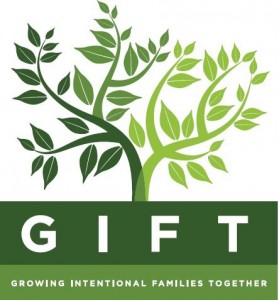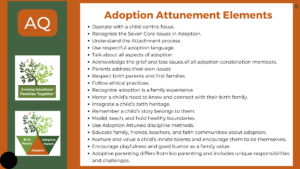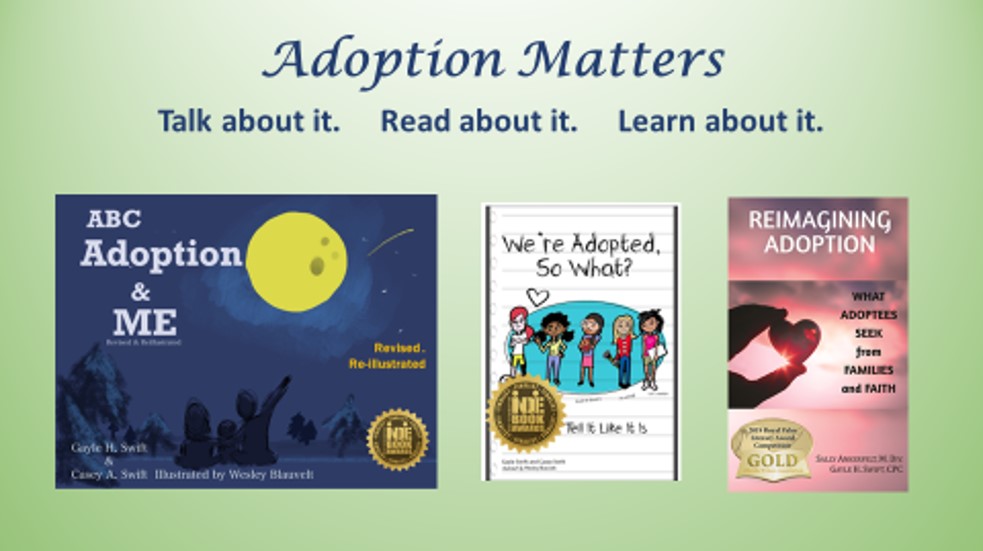Feeling short of time or finding it difficult to concentrate? You can listen to this post. Listen time 7:11

Families follow a core set of values that governs their priorities, shapes their belief system, and guides their behaviors. (We’ve blogged about the process of being intentional in defining these core values.)
Growing Intentional Families Together also has a guiding set of principles and beliefs that inform all of our coaching and writing: our Adoption Philosophy (posted on our website) and Adoption Attunement (AQ) form the Core Tenets. These two pillars establish the lenses, through which we explore adoption-related topics. They inform our blogs, podcasts, webinars, and posts on Facebook, Twitter, LinkedIn, and Pinterest.
Today’s blog will focus on “Parents handle their own stuff.” Our own “stuff”?
What might this be? (Let’s stipulate that adoptive parents love their children even while they acknowledge the lack of biological connection. This love does not erase the reality that adoption builds family through a connection of the heart, affirmed by legal sanction, not through biology. (For the entire list of the Elements of Adoption Attunement (AQ), see the graphic at the end of this post. Feel free to copy and share.)
Infertility Most— but not all— adoptive parents choose adoption because of infertility issues that render pregnancy impossible. Once adoptive parents accepted this reality of infertility, we updated our goal from pregnancy to becoming parents through adoption.
Adoption does not cure infertility
 Adoption made our becoming parents a reality. however, adoption does not cure infertility. Nor does it erase any of the memories of monthly cycles of hope followed by crushing despair. In his book, The Body Keeps the Score: Mind, and Body in the Healing of Trauma Bessel van der Kolk M.D. asserts that trauma leaves its imprint on the body even when it remains beyond conscious awareness. The minds and bodies of adoptive parents who experienced infertility recall the emotions fueled by hormonal storms and other personal struggles associated with infertility. The echoes of pain, sadness, and resentment of infertility create imprints that are both significant and permanent. They need and deserve the time and attention to process, manage, and heal them.
Adoption made our becoming parents a reality. however, adoption does not cure infertility. Nor does it erase any of the memories of monthly cycles of hope followed by crushing despair. In his book, The Body Keeps the Score: Mind, and Body in the Healing of Trauma Bessel van der Kolk M.D. asserts that trauma leaves its imprint on the body even when it remains beyond conscious awareness. The minds and bodies of adoptive parents who experienced infertility recall the emotions fueled by hormonal storms and other personal struggles associated with infertility. The echoes of pain, sadness, and resentment of infertility create imprints that are both significant and permanent. They need and deserve the time and attention to process, manage, and heal them.
An adoptive mother cannot know the intimacy of carrying her child, ensuring that she cared for them as carefully as possible until their birth. She cannot enjoy murmuring conversations with her unborn offspring, silently affirming her joy at her child’s existence sharing her hopes and aspirations for him.
An adoptive mother cannot conceive a child that blends aspects of herself and her partner, the penultimate, tangible expression of marriage in which two become one. She cannot create a child who shares their DNA; the flow of their family lineage is interrupted, the continuity broken.
Without doubt, these alterations evoke an emotional response within adoptive parents. They do well to explore, understand, accept, and come to terms with this reality. If not addressed, emotional repercussions will reverberate through their relationships with their children. Buried and unacknowledged feelings eventually erupt— usually with damaging ferocity—and at the worst times.
This is not a relationship strategy that adoptive parents want to model for their children. Instead, they want to show them that it is important to face whatever issues they find challenging. adoptive parents must convey to their children that they are capable of managing their own feelings, that it is not the child’s responsibility to hide or minimize their adoption-connected thoughts and feelings in order to shelter parental hearts from sadness.
If kids are overly focused on caretaking parental emotions, they will be stuffing, denying, or minimizing their own. Instead of being able to turn to adoptive parents as a sounding board to explore their own complex feelings and as a source of comfort and security, children will struggle to handle them alone. They lack the experience, skillsets, and perspectives that adults have. Children’s ability to manage complex grief and loss is not yet strong enough. They need their parents to provide that safe harbor. They need to be able to believe that parents are capable of hearing difficult stuff without falling apart emotionally themselves.
Parents must handle their own “stuff”
If parents feel overwhelmed or challenged by the emotions, grief, and loss connected with infertility or adoption complexity they must not burden their children with the weight of them or the shadows they cast. Parents must attune to their own needs with the same intentionality that they strive to attune to their children’s needs. They must find a qualified adoption-attuned professional to help them cope and to ensure that they have handled “their stuff” so they can be fully available to their children to help them handle theirs. The entire family will be healthier, happier, and more authentic in their relationships with each other.
Finances— Infertility and adoption are both inextricably entangled with finances. Adoptive parents must be careful not to overextend their financial stability as they pursue the dream of conception and/or adoption. They must remain true to the highest ethical standards when they engage in family-building strategies. They cannot allow their hunger to be parents to blind them to the ethics and morality of whatever paths they follow. (Our previous blog explored some of the tragic fallout of ethical and/or legal lapses.)
Our children depend on us to keep them safe. Living aligned with our ethics is important both as a model for them to follow and for the security and stability that doing right creates. How are you ensuring that you are handling your “stuff”?

Your Adoption Attunement (AQ) Specialosts
providing coaching and support before, during, and after adoption.”
Learn how the coaches at GIFT Family Services can help you and your family navigate your adoption journey. We’ve faced our share of family challenges and crises, ridden the metaphorical rollercoaster, and our families have not only survived; they have thrived. We offer experience, neutrality, and understanding. GIFT coaches are available to present workshops on-line. Contact us to explore this possibility: 1-800-653-9445
Read these books written by our coaches.
Listen to our podcasts.



